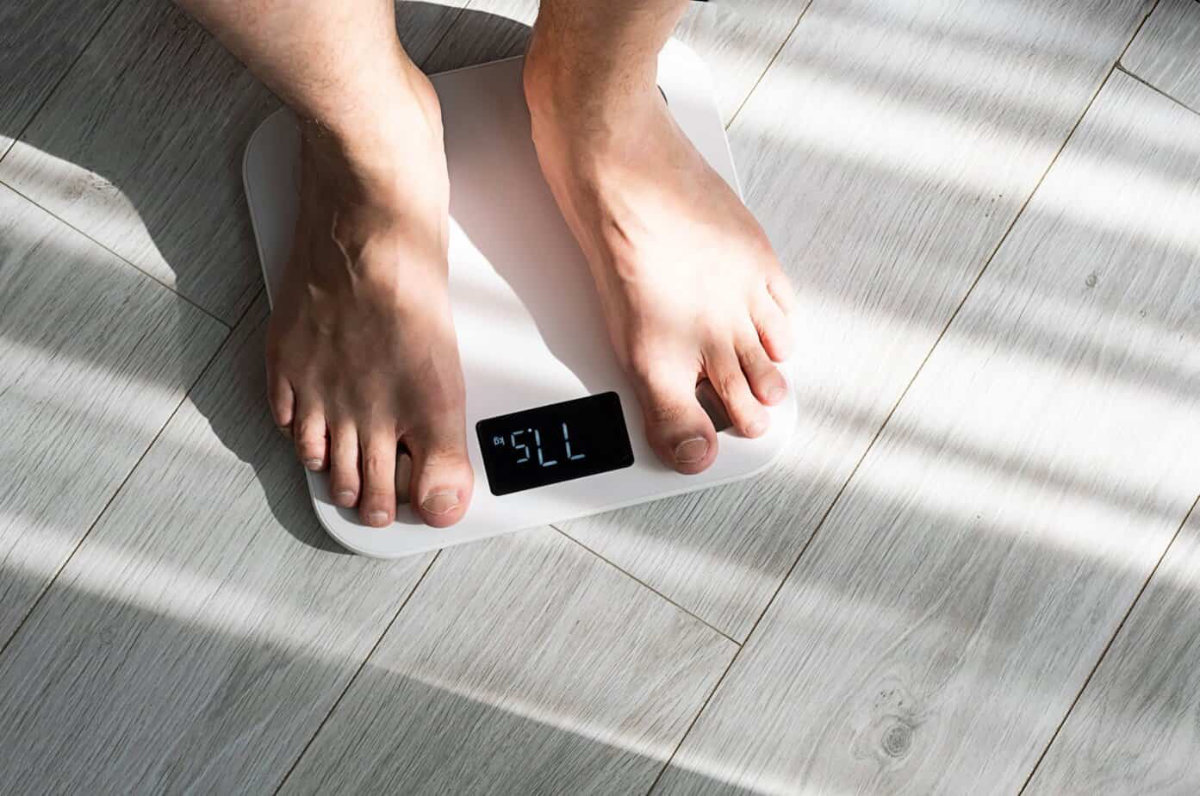Can Modafinil Cause Weight Loss? Evidence, Mechanisms, and Safety Explained
Modafinil is a prescription medicine used to improve wakefulness in people with narcolepsy, obstructive sleep apnea, and shift work disorder. Some people notice less hunger or small weight changes while taking it, which raises a common question: can modafinil help with weight loss? This article reviews what is known, what is not known, and how to stay safe if you use modafinil for approved reasons (U.S. Food and Drug Administration, 2015; Greenblatt & Adams, 2023).
What is modafinil?
Modafinil is a wakefulness-promoting agent that affects brain chemicals involved in alertness. It is approved in the United States for narcolepsy, obstructive sleep apnea, and shift work disorder. Typical dosing is 200 mg once daily. It is a Schedule IV controlled substance, so it should be used only under medical supervision (U.S. Food and Drug Administration, 2015).
Mechanistically, modafinil weakly inhibits dopamine reuptake and may influence orexin and histamine pathways that regulate wakefulness. It can also indirectly affect norepinephrine and serotonin signaling. Decreased appetite is among the commonly reported adverse effects in some users (Greenblatt & Adams, 2023).
Does modafinil cause weight loss?
Short answer, not reliably. Modafinil is not a weight loss drug. Some people eat less while on it, and a few may lose weight, but consistent, clinically meaningful weight loss has not been proven in long-term trials (U.S. Food and Drug Administration, 2015; Greenblatt & Adams, 2023).
Two controlled human studies found that single or short runs of modafinil reduced energy intake when food was freely available. In a 23-day inpatient study using simulated shift work, daily modafinil cut total calories about 18 percent at 200 mg and about 38 percent at 400 mg over three consecutive days, without changes in macronutrient ratios. Ratings of hunger dropped before lunch, and tolerance to this effect did not appear over the three days observed (Perez et al., 2008). In another crossover study, a single mid-range dose of modafinil reduced food intake similarly to d-amphetamine, but this was a single-day effect and not dose-linear across all doses tested (Makris et al., 2004).
These studies involved small samples of healthy adults and short observation windows. They show appetite effects, not sustained weight loss.
How might modafinil affect weight?
Several pathways may contribute:
- Appetite suppression: Reduced hunger and lower calorie intake were observed across multiple doses and settings in healthy participants (Perez et al., 2008; Makris et al., 2004).
- Increased wakefulness and activity: Feeling less fatigued can make it easier to be active, which may raise daily energy expenditure for some people (Greenblatt & Adams, 2023).
- Neurochemical effects: Modafinil’s modulation of dopamine, orexin, and histamine may influence both arousal and feeding behavior (Greenblatt & Adams, 2023).
These mechanisms can support small, short-term changes. They do not establish durable weight loss.
What do clinical studies show about weight change?
- Controlled calorie-intake studies: Short-term reductions in energy intake with modafinil have been shown in healthy adults, as described above. These were not weight-loss trials, and participants were not followed long enough to measure sustained body-weight change (Perez et al., 2008; Makris et al., 2004).
- Clinical case evidence: A clozapine-treated patient lost about 40 lb in the first year after starting 200 mg modafinil daily, regained weight after stopping it, and lost again when it was restarted. The authors proposed reduced clozapine-related fatigue as a likely factor. This is a single-patient case and cannot answer how common or reproducible this effect is (Henderson et al., 2005).
Bottom line, current evidence supports short-term appetite effects and isolated reports of weight change, not a reliable or approved weight-loss benefit.
Is modafinil safe to use for this purpose?
Modafinil should not be used to lose weight. It should be prescribed only for approved conditions, and any weight change should be treated as a side effect rather than a goal. Important safety notes include:
- Serious rashes and hypersensitivity: Rare but potentially severe. Stop the medicine and seek care if a rash or allergic symptoms occur, especially early in treatment (U.S. Food and Drug Administration, 2015).
- Psychiatric effects: Anxiety, insomnia, agitation, and rare psychotic or manic symptoms have been reported, particularly in susceptible individuals. Clinicians monitor mood and sleep closely (U.S. Food and Drug Administration, 2015).
- Cardiovascular caution: Use caution in people with certain heart conditions. Blood pressure and heart rate monitoring may be appropriate for some patients (U.S. Food and Drug Administration, 2015).
- Common side effects: Headache, nausea, decreased appetite, and insomnia are among the most reported (U.S. Food and Drug Administration, 2015; Greenblatt & Adams, 2023).
Who should avoid modafinil or use it with extra care?
- History of serious rash with modafinil or armodafinil
- Uncontrolled cardiovascular disease, recent heart attack, or known left-ventricular hypertrophy
- Current or past psychosis or mania, unless closely monitored
- Severe hepatic impairment, where dose reduction is needed
- Pregnant or breastfeeding individuals, where risks and benefits should be carefully considered (U.S. Food and Drug Administration, 2015; Greenblatt & Adams, 2023)
Are there important drug interactions?
Yes. Modafinil interacts with several medicines:
- Hormonal contraceptives: Modafinil can reduce the effectiveness of combined oral contraceptives. Use a reliable nonhormonal or additional method during treatment and for one month after stopping (U.S. Food and Drug Administration, 2015).
- CYP interactions: Modafinil is a substrate and inducer of cytochrome P450 3A4 and a weak inhibitor of 2C19. Levels of some medicines can rise or fall. Clinicians review full medication lists to prevent problems (U.S. Food and Drug Administration, 2015; Greenblatt & Adams, 2023).
What about antipsychotic-related weight gain?
Weight gain and fatigue are common with some antipsychotics. In a published case, adding modafinil to clozapine was associated with large, sustained weight loss, with weight regain after stopping and loss again after restarting. The proposed reason was reduced sedation and more activity, not a direct fat-loss effect. This is encouraging for select patients, but it is not proof of benefit for most people. Larger, longer studies are needed before routine use for this purpose can be recommended (Henderson et al., 2005).
Practical guidance
- Use modafinil only for approved indications under medical supervision.
- Do not rely on modafinil for weight loss. Focus on nutrition, activity, sleep, and condition-specific care.
- Tell your clinician about all medicines, supplements, and contraceptive methods you use.
- Report skin rashes, mood changes, chest symptoms, or persistent insomnia promptly (U.S. Food and Drug Administration, 2015; Greenblatt & Adams, 2023).
FAQs
Can modafinil help me lose weight if I am otherwise healthy?
No. Some people eat less on modafinil for short periods, but modafinil is not a weight loss medicine and long-term weight reduction has not been proven (Perez et al., 2008; U.S. Food and Drug Administration, 2015).
Is decreased appetite normal on modafinil?
It can happen. Decreased appetite is a reported side effect in a portion of users. If appetite loss is strong or leads to unhealthy eating patterns, speak with your clinician (U.S. Food and Drug Administration, 2015; Greenblatt & Adams, 2023).
Can I take modafinil at night?
For shift work disorder, the dose is taken about one hour before the night shift. For other approved uses, doses are typically in the morning to avoid insomnia. Follow your prescription instructions (U.S. Food and Drug Administration, 2015).
Do I need backup contraception while on modafinil?
Yes. Modafinil can reduce the effectiveness of hormonal contraceptives. Use a nonhormonal or additional method during treatment and for one month after stopping (U.S. Food and Drug Administration, 2015).
References
- U.S. Food and Drug Administration. (2015). PROVIGIL® (modafinil) tablets, for oral use, C-IV [Prescribing information]. U.S. Department of Health and Human Services. https://www.accessdata.fda.gov/drugsatfda_docs/label/2015/020717s037s038lbl.pdf
- Greenblatt, K., & Adams, N. (2023, February 6). Modafinil. In StatPearls [Internet]. StatPearls Publishing. https://www.ncbi.nlm.nih.gov/books/NBK531476/
- Makris, A. P., Rush, C. R., Frederich, R. C., & Kelly, T. H. (2004). Wake-promoting agents with different mechanisms of action: Comparison of effects of modafinil and amphetamine on food intake and cardiovascular activity. Appetite, 42(2), 185–195. https://doi.org/10.1016/j.appet.2003.11.003
- Perez, G. A., Haney, M., Foltin, R. W., & Hart, C. L. (2008). Modafinil decreases food intake in humans subjected to simulated shift work. Pharmacology Biochemistry and Behavior, 90(4), 717–722. https://doi.org/10.1016/j.pbb.2008.05.018
- Henderson, D. C., Louie, P. M., Koul, P., Namey, L., Daley, T. B., & Nguyen, D. D. (2005). Modafinil-associated weight loss in a clozapine-treated schizoaffective disorder patient. Annals of Clinical Psychiatry, 17(2), 95–97. https://doi.org/10.1080/10401230590932407








